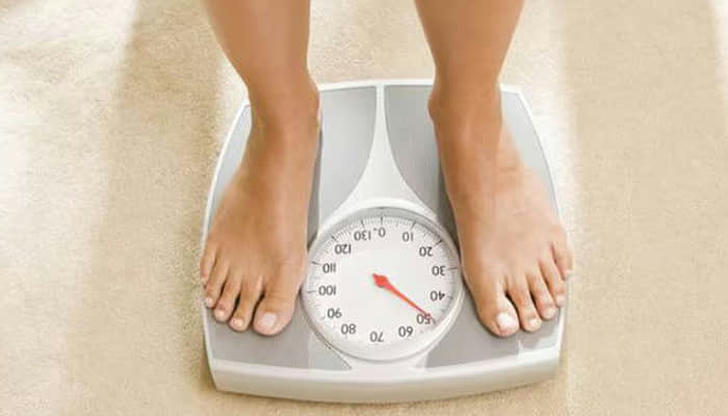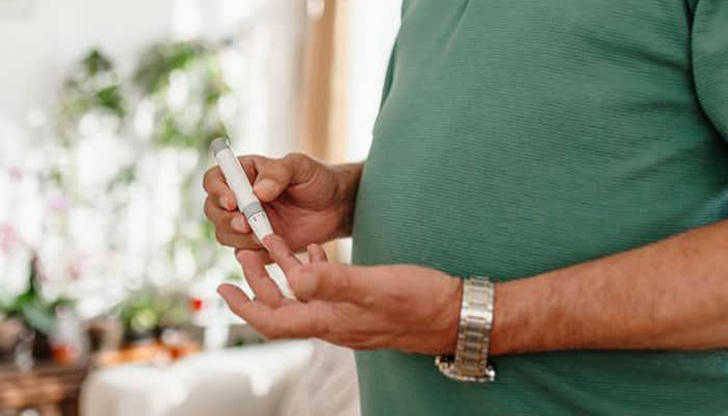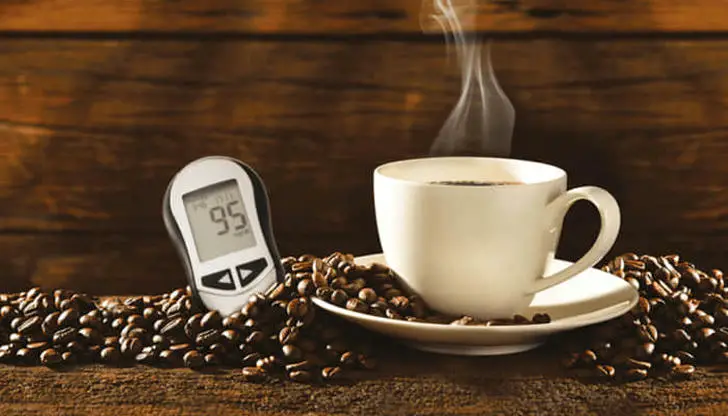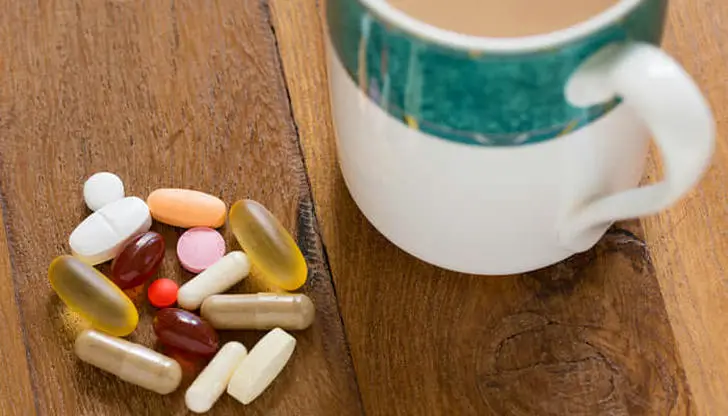Coffee and Type 2 Diabetes: Does Caffeine Influence Blood Glucose Levels?
Advertisement

When it comes to managing Type 2 diabetes, every aspect of diet and lifestyle can play a crucial role. For many, coffee is a beloved part of daily life, often enjoyed for its rich flavor and energizing effects. But for those living with Type 2 diabetes, there’s a lingering question: Does caffeine in coffee influence blood glucose levels?
This question has sparked considerable debate and research. Some studies suggest that coffee might actually have beneficial effects on blood sugar control, thanks to its complex blend of compounds. Others raise concerns about caffeine's potential to interfere with glucose metabolism and insulin sensitivity. So, where does the truth lie?
In this article, we’ll dive into the science behind coffee and its impact on Type 2 diabetes. We’ll explore how caffeine affects your body, review recent research findings, and offer practical advice for integrating coffee into a diabetes-friendly lifestyle. Whether you’re a coffee aficionado or just curious about how your morning cup might affect your health, read on to uncover the facts and make informed choices about your coffee consumption.
Type 2 diabetes is a chronic condition that affects how your body metabolizes glucose, a key source of energy. Unlike Type 1 diabetes, where the body’s immune system attacks insulin-producing cells, Type 2 diabetes is primarily characterized by insulin resistance. This means that the cells in your body don’t respond properly to insulin, and over time, the pancreas can't produce enough insulin to keep blood glucose levels in check.
Managing blood glucose levels is crucial for preventing the complications associated with Type 2 diabetes, such as heart disease, nerve damage, and kidney problems. This management typically involves a combination of lifestyle changes, including diet, exercise, and, in some cases, medication.
Coffee and Type 2 Diabetes: What’s the Connection?
If you’re a coffee lover, you might be curious about how your daily cup affects your blood sugar, especially if you have Type 2 diabetes. Coffee, with its caffeine kick, has been studied to see how it impacts glucose levels and insulin sensitivity.
Caffeine can have a mixed effect. On one hand, it might help speed up your metabolism and burn fat, which is beneficial for managing weight—a key factor in controlling Type 2 diabetes. On the other hand, caffeine could cause temporary spikes in blood sugar levels and affect insulin sensitivity, which might make it harder to keep your blood sugar stable.
So, what’s the deal with coffee and diabetes? Let’s break down the research and find out how you can enjoy your coffee while keeping your blood sugar in check.
Positive Effects of Coffee on Type 2 Diabetes
There’s some intriguing research suggesting that coffee might offer benefits for those managing Type 2 diabetes. Here’s how your coffee habit could be working in your favor:

Better Insulin Sensitivity
Some research suggests that coffee can improve how well your body uses insulin. This means that coffee might help your cells respond to insulin more effectively, which helps keep your blood sugar levels more stable. This benefit could come from compounds in coffee called polyphenols.

Helping with Weight Control
Keeping your weight in check is important for managing diabetes, and coffee might help with that. Caffeine can boost your metabolism and help your body burn fat more efficiently.

Rich in Antioxidants
Coffee is full of antioxidants, which help protect your body from damage and inflammation. Reducing inflammation is helpful for diabetes management because it can improve how well your body handles insulin.

Lower Risk of Complications
Some studies suggest that drinking coffee might lower the risk of complications related to diabetes, like heart disease. The antioxidants and other healthy compounds in coffee could contribute to better overall health.
Potential Risks and Concerns
While coffee might have some upsides, there are also potential risks to consider, especially if you have Type 2 diabetes:

Possible Blood Sugar Spikes
Caffeine can cause temporary increases in blood sugar levels. This happens because caffeine triggers the release of stress hormones, which can raise glucose levels. For people with Type 2 diabetes, these spikes can make it harder to manage blood sugar.

Impact on Insulin Resistance
In some cases, caffeine might worsen insulin resistance, especially if you drink a lot of coffee. This can make it harder for your body to use insulin effectively and keep blood sugar levels in check.

Interaction with Medications
Coffee can interact with certain diabetes medications, which might affect how well they work. If you’re on medication for diabetes, it’s a good idea to discuss your coffee consumption with your doctor.

Disrupting Sleep
Caffeine can interfere with your sleep, and poor sleep can negatively affect blood sugar levels and insulin sensitivity. For those with diabetes, good sleep is crucial for managing blood sugar effectively.
How Coffee Affects Blood Glucose Levels
Let’s explore how coffee can influence your blood sugar levels, breaking it down into easy-to-understand points:
Caffeine, the main active ingredient in coffee, can boost your metabolism. This might help with weight management, which is important for controlling blood sugar levels. Additionally, some research suggests that caffeine might improve how well your body responds to insulin. This means your cells could use glucose more efficiently, potentially helping to keep your blood sugar stable.
Coffee is also rich in antioxidants, which fight damage in your body and reduce inflammation. Lowering inflammation can help your body use insulin more effectively. By reducing inflammation, coffee might make insulin work better and support better blood sugar management.
However, caffeine can also cause temporary increases in blood sugar levels by stimulating hormones that affect glucose metabolism. These spikes are usually short-lived and might not have a significant impact on long-term blood sugar control if you drink coffee in moderation. Caffeine can also influence how the liver breaks down stored glucose (glycogen) and releases it into the bloodstream, affecting blood sugar levels.
In addition to caffeine, coffee contains other beneficial compounds like chlorogenic acids. These compounds might also influence how your body absorbs glucose and manages insulin.
Practical Tips for Coffee Drinkers with Type 2 Diabetes
If you're managing Type 2 diabetes and can't imagine your day without coffee, there are a few simple strategies to make sure your coffee habit doesn't disrupt your blood sugar control. Start by monitoring how coffee affects your blood glucose levels. Checking your blood sugar before and after a cup can reveal if coffee is causing any noticeable spikes.
Moderation is key, so consider limiting your intake to a few cups a day. Avoiding excessive caffeine can help keep your blood sugar levels more stable. Also, be cautious with what you add to your coffee—high amounts of sugar or sugary creamers can quickly elevate your blood glucose. Opt for lower-sugar alternatives or smaller amounts of milk or cream.
Timing is another factor to consider. Try to drink coffee at times that won’t interfere with your meals or medication, such as avoiding coffee on an empty stomach. And don’t forget that coffee is a diuretic, which can lead to dehydration. Drinking plenty of water throughout the day helps keep you hydrated and supports overall blood sugar management.
Alternatives to Regular Coffee
If you’re looking for options that might be easier on your blood sugar levels, consider these alternatives:
• Decaffeinated Coffee: Enjoy the taste of coffee without the caffeine. Decaf coffee still has antioxidants and is less likely to cause blood sugar spikes.
• Herbal Teas: Caffeine-free options like chamomile, peppermint, or rooibos are soothing and won’t affect your blood sugar levels. Some herbal teas may even have additional health benefits.
• Green Tea: Contains a small amount of caffeine but is rich in antioxidants. It has potential benefits for blood sugar control while offering a lighter caffeine boost.
• Infused Water: Add slices of fruit, cucumber, or herbs to water for a refreshing, flavorful drink that won’t impact your blood sugar.
• Unsweetened Almond Milk or Coconut Water: Both are good choices if you’re looking for a refreshing beverage without caffeine. They provide some nutrients and can be a healthy part of your diet.
